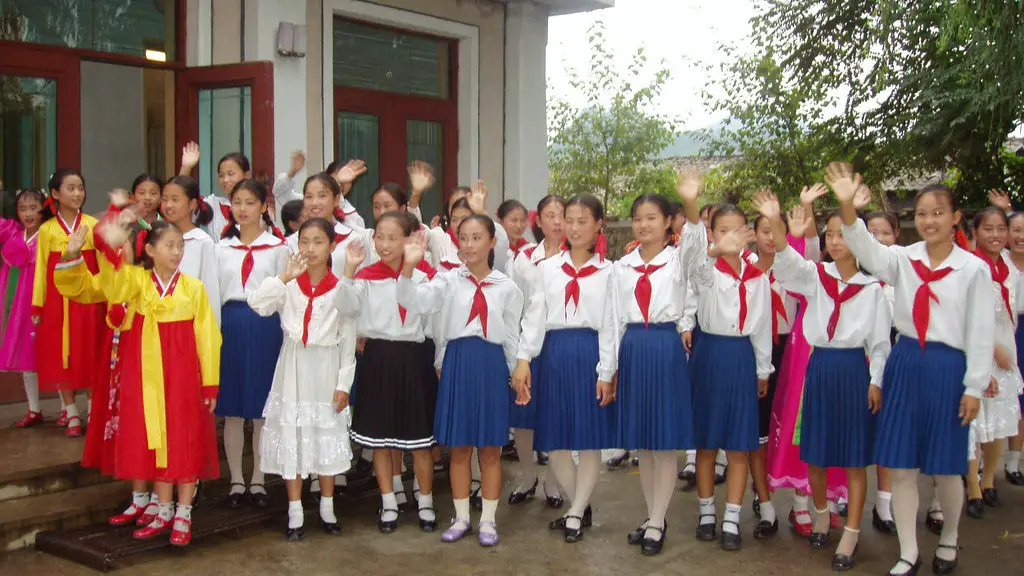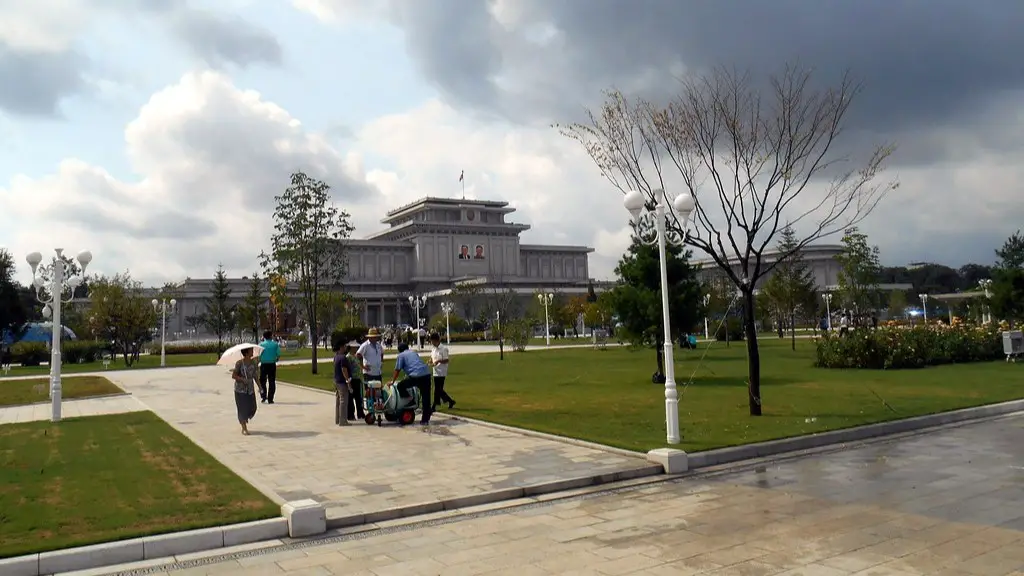The question of whether to attack North Korea has been raised numerous times by various world leaders. This has caused much discussion and debate, as it carries serious implications for the international community, both politically and militarily. In this article, we will explore why attacking North Korea is ill-advised, the potential consequences of such an attack, and the better alternatives that should be considered.
North Korea’s Military Capability
North Korea is known for its extensive military arsenal, inheriting its forces from the Korean conflict. It has conventional weapons, as well as nuclear, chemical, and biological weapons. North Korea has conducted nuclear weapons tests and vowed to “smash the U.S. imperialists” if attacked. With an estimated 1.2 million personnel, North Korea has one of the world’s largest standing armies, and has a large stockpile of rockets and missiles to supplement its ground forces. This means that a military act of aggression against North Korea would require a considerable effort and would be highly risky.
Potential Consequences
The potential repercussions of attacking North Korea would be catastrophic. Military experts estimate that a war between North Korea and the U.S. would cost between $2.8 trillion and $5.2 trillion and result in the deaths of over 30 million people. Additionally, an attack would set off a chain of events, potentially leading to a nuclear war, and could destabilize the Korean Peninsula. In the event of a war, South Korea, Japan and other countries in the region would be greatly affected, leading to a human and economic crisis.
Alternatives
A military attack on North Korea is not the only possible response to the country’s aggression. There are better options than simply resorting to the threat of military force. One option is the use of economic sanctions. Sanctions can restrict North Korea’s access to financial resources and target specific industries, such as those related to their nuclear program. Another option is the reinvigoration of diplomacy between North Korea and the United States. Diplomatic solutions such as direct talks, agreements and negotiations can provide an alternative to military force.
Recommendations
Given the potential consequences and lack of a clear benefit to an attack on North Korea, it is recommended that the international community instead consider using economic sanctions and diplomatic solutions. Sanctions could be effective in deterring North Korea from taking reckless actions, while diplomacy can provide a path to a peaceful resolution. A military attack should only be considered as a last resort if all other options have been exhausted.
Effects on Alliances
It is also important to take into consideration the effects that an attack on North Korea would have on international alliances. The United Nations Security Council has heavily criticized North Korea’s nuclear ambitions, but U.S. allies have been hesitant to support any military action. U.S. allies in the region, such as Japan and South Korea, would face significant risks should the U.S. choose to attack North Korea, while other countries such as China and Russia could be forced to take a more active stance.
Internally Displaced Peoples
An attack on North Korea would also have a profound effect on its people. Although North Korea’s regime is oppressive and has imposed harsh living conditions on its citizens, the effects of a foreign military attack could be devastating. This is especially true of North Korea’s 30 million citizens, many of whom may be forced to flee their homes or face dire consequences from the regime. All these factors should be taken into account before launching a military attack on North Korea.
International Law
Attacking North Korea could have implications for international law. Under international law, the use of force against a sovereign state is only permissible in self-defense or with authorization from the Security Council. The United States would not be legally justified in launching an attack without Security Council approval, meaning that an attack on North Korea would be a violation of international law.
In the Media
International media outlets have also been quick to criticize calls for a military attack on North Korea. Despite the hostile rhetoric coming from some U.S. politicians, media outlets have argued that a military attack would be a reckless move that could lead to further regional instability. Many have argued that a diplomatic resolution is the only way to meaningfully address the threat posed by North Korea.
Future of Inter-Korean Relations
Attacking North Korea could also have negative consequences for inter-Korean relations. North Korea’s relationship with South Korea is fragile, and any aggressive actions taken by the U.S. could cause the North to further isolate itself and terminate inter-Korean agreements that have been made in the past. This could further destabilize the Korean Peninsula and increase the risk of war.
Recommendations for Negotiation
An attack on North Korea is not the only option. Negotiation and diplomacy should remain the focus of international discussions with North Korea. It is recommended that negotiations focus on issues such as North Korea’s nuclear program, human rights abuses and economic sanctions. Additionally, it is essential to address the root causes of North Korea’s aggression, such as poverty and political isolation, in order to achieve a lasting solution.
Regional Security
An attack on North Korea could have serious ramifications for regional security. U.S. allies in the region, such as Japan and South Korea, could be targeted by North Korea’s weapons, prompting them to retaliate and dragging the region into a wider conflict. This could have a destabilizing effect in the region and potentially damage the international order.
Economic Factors
Another factor to consider is the economic consequences of an attack on North Korea. North Korea’s economy is already heavily isolated, and an attack would likely lead to even further sanctions and disruptions in trade and aid. This could significantly damage North Korea’s already weak economy, leading to further hardship for its citizens.



